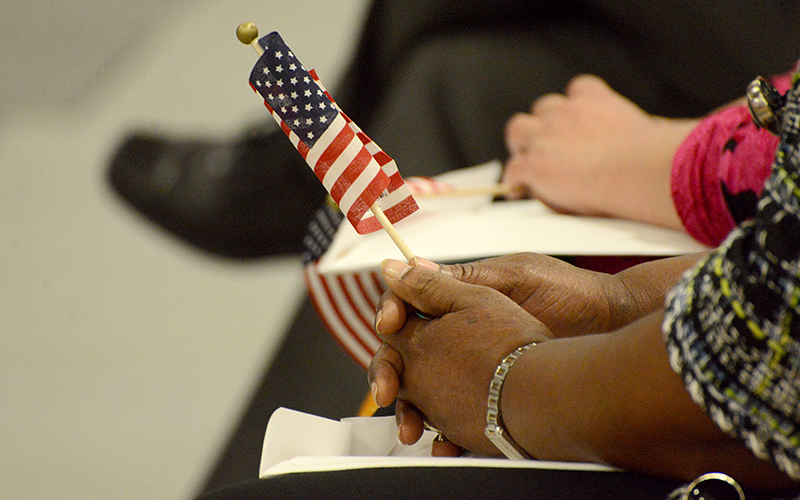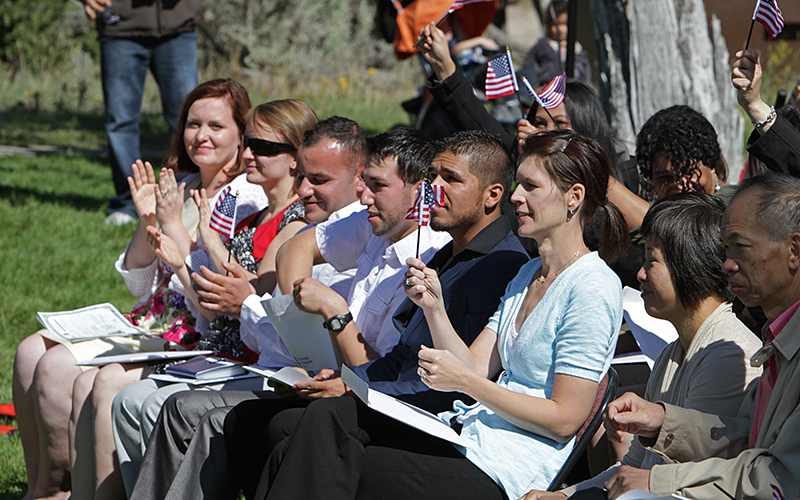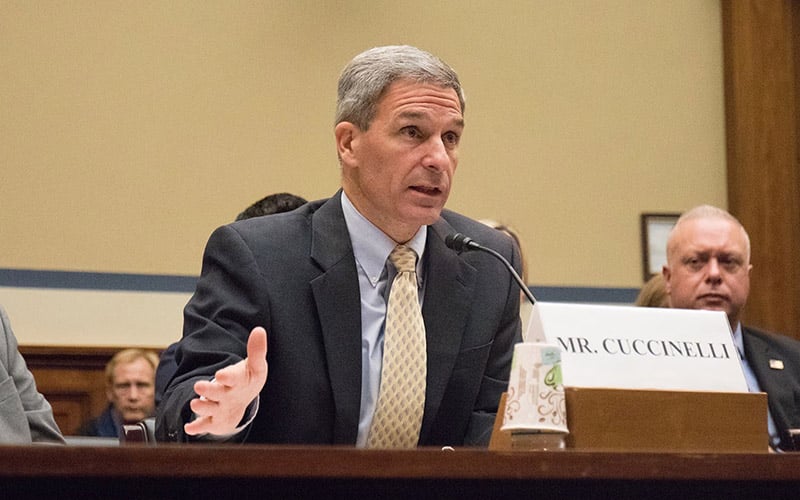WASHINGTON – Immigration experts and advocates in Arizona are urging people to file their paperwork as soon as possible as federal agencies eye steeper processing fees across a broad range of citizenship forms.
U.S. Citizenship and Immigration Services announced plans this month to raise the fees it charges for everything from applying for naturalization to renewing Deferred Action for Childhood Arrivals protection, from asylum requests to petitions to suspend removals from the U.S.
Acting USCIS Director Ken Cuccinelli said the increases, which average 21% across all forms, are need to cover the “true cost” of business for the agency, which is almost entirely dependent on fees for its budget. Without the new prices, the agency said it could be underfunded by $1.3 billion a year.
But advocates who guide people through the various applications fear that the fee increase will prevent people from applying.
“This is not good business. This is not good American values. And it’s going to bring a lot of hardships to communities that already live in hardships,” said Petra Falcon, executive director of Promise Arizona.
Among changes proposed by the agency, the cost of filing for naturalization would rise 83%, from $640 to $1,170, while DACA recipients would see a 55% increase in the cost of a renewal application, from $495 to $765. The agency has also proposed a new $50 fee for refugees granted asylum, and a whopping increase in the cost of applying for delayed removal, from $285 to $1,800.
In addition to paying for current services, the agency said the additional money is needed to more thoroughly vet applicants through social media screens and in-person interviews, shorten processing times and hire more employees to handle the workload. The agency also plans on hiring more than 6,400 employees with the money.
“USCIS is required to examine incoming and outgoing expenditures, just like a business, and make adjustments based on that analysis,” Cuccinelli said in a news release.
The agency, which got just under $143 million in funding from Congress in fiscal 2019, last raised fees in 2016. Cuccinelli said it relies on fees for 96% of its budget.
Organizations advocating for immigration reform said the USCIS’ plan sends “a clear message that Americans value citizenship.”
“It’s a balancing act that USCIS has to do with these applications,” said Jessica Vaughan, director of policy studies for the nonprofit Center for Immigration Studies. The fees, she said, have “been underpriced for a very long time.”
“It’s about time to adjust those fees so that they can avoid delays,” she said.
Rising application fees are nothing new: Those applying for naturalization in 1989 were charged $60, less than one-tenth the current fee.
Julia Gelatt, a senior policy analyst with the Migration Policy Institute, said that while the increases are not unique to any administration, she questioned the need for some of the expanded services under the latest proposal.
“Part of the fee increase would’ve happened under any administration, under any policy regime, as costs go up over time. But part of the fee increase is probably the result of policy decisions that the administration is making,” Gelatt said.
She also noted that the proposal calls for transferring $207.6 million from USCIS to Immigration and Customs Enforcement.

Supporters say higher fees will mean a more efficient USCIS, but migration advocates fear it will come at the expense of immigrants’ ability to apply. (Photo by University of Findlay/Creative Commons)
But Matthew O’Brien, director of research for the Federation for American Immigration Reform, called the increase a reasonable approach by an agency that operates largely on the money it raises. The higher fees also indirectly help deter threats from abroad, he said.
“Charging responsible filing fees for immigration benefits sends a clear message that Americans value membership in our civic community and we will not carelessly hand out that privilege to those who are not willing to pay their own way,” he said in an emailed statement.
But Falcon said current fees already present a hurdle to applicants otherwise “eager” to complete the process.
“We’re helping people as much as we can to get in before the deadline, both at the DACA level and at the citizenship level,” she said.
Falcon and other members of her nonprofit are leading education campaigns about the fees, while encouraging people to oppose the increase. A public comment period that runs through Dec. 16 had attracted 4,256 comments by Wednesday.
Ruben Reyes, a Phoenix-based immigration attorney, said he has advised his clients to naturalize as soon as they are eligible.
“Waiting for a better time doesn’t seem to be anywhere near the horizon,” Reyes said.

